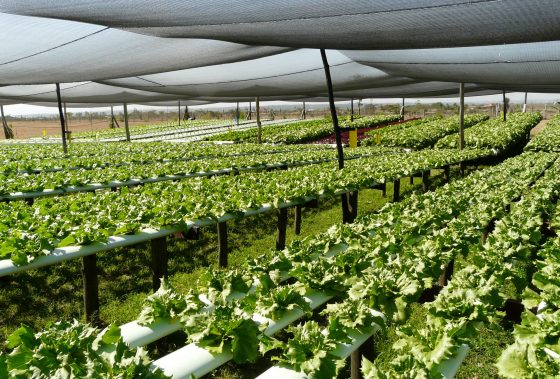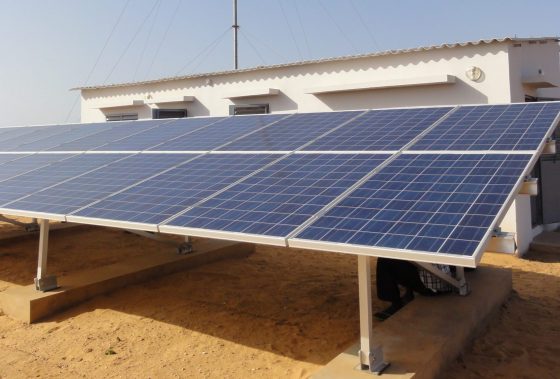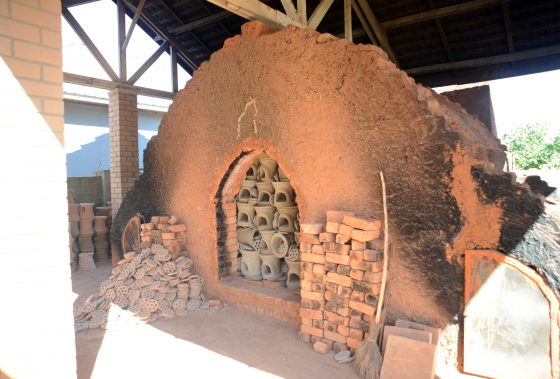
Uganda
Uganda meets the predominant part of its energy demand with biomass and fossil fuel combustion. Only a small minority of the population has access to electricity, especially in rural areas. The demand for firewood for cooking exceeds natural reproduction, leading to deforestation. EnDev Uganda helps to facilitate market-based energy access to climate-friendly and affordable solar and cooking energy technologies to address both gaps. A specific focus lies on reaching last-mile areas and refugee settings. All activities are implemented in close collaboration with the Ministry of Energy & Mineral Development (MEMD).
Technologies used in this project
- Biogas
- Grid
- Higher-tier cookstoves
- Improved cookstoves
- Stand-alone systems
Country data
- People with access to modern cooking services: 2,786,663*
- People with access to electricity: 146,843*
- SIs with access to modern energy services: 1,634*
- MSMEs with access to modern energy services: 3,091*
- *Achievements until December 2024
Approach
1. Cooking Energy Component
This component follows two approaches: For the first one, EnDev provides strategic market- and performance-based support to private sector cookstove companies to increase their sales and distribution outreach to reach more households and food vending SMEs with improved cooking solutions. Additional support areas include targeted business development coaching and training, and production infrastructure enhancements. To further create a favourable enabling environment, EnDev also provides policy advocacy expertise, awareness and cookstove standards support in cooperation with relevant sector associations.
Find more information here.
2. Solar Component
Like the cooking energy component, EnDev Uganda supports solar companies in the dissemination of Solar Home Systems (SHS) and picoPV for households, social institutions, and SMEs using the Results-based financing (RBF) as the primary mechanism. This is enhanced through tailored business development support (BDS) for solar SMEs geared towards investment readiness and business resilience. Additional aspects include policy advisory, awareness creation (including demonstration sites -demos), support to and close collaboration with relevant sector associations and a pilot linking PAYG companies to the credit reference system (CRS).
3. Refugee Component
In addition to overall partners, the component cooperates closely with the Office of the Prime Minister (OPM) and United Nations High Commissioner for Refugees (UNHCR) to facilitate and improve framework conditions for sustainable access to energy for refugees and host communities, and provide access to modern energy services and products to Ugandan and refugee households (HHs), enterprises and social institutions through market-based approaches to increase the adoption for solar PV and improved energy efficient cook stoves. Approaches include RBF, building market linkages through the energy kiosk model, enhancing local service delivery, and building capacities.
Learn more about EnDev´s approach
Impact
EnDev’s market-based approach in Uganda has significantly expanded access to clean energy solutions, particularly in off-grid electricity and improved cooking technologies. By supporting households, social institutions, MSMEs, and vulnerable groups—including refugees and host communities—EnDev promotes inclusive energy access nationwide.
Key achievements include:
- Widespread adoption of improved cookstoves and higher-tier cooking appliances, especially among food vendors and small businesses, facilitated through results-based financing and business development support.
- Strengthened capacity for clean cooking companies via technical assistance, innovative business models, and joint awareness campaigns.
- Focused Gender, Equity, and Social Inclusion (GESI) training to promote gender equality within the sector.
- Promotion of productive and institutional solar energy use through partnerships with financial institutions, enabling access for farmers, schools, and women-led enterprises.
- Targeted results-based financing interventions reaching hard-to-reach and vulnerable households, improving affordability and availability of solar lanterns and home systems.
- Business development support addressing challenges such as transport and after-sales services to ensure sustained market growth.
- Collaboration with microfinance institutions to facilitate loans for productive energy use, including small-scale irrigation for farmers.
- Active engagement with local and international solar associations to drive sector awareness and promote increased solar adoption.
Through these efforts, EnDev strengthens Uganda’s clean energy market, enhances economic resilience, and ensures no one is left behind in the transition to sustainable energy.
Energy Access through Demand-Side Subsidies
Funded by the Directorate-General for International Cooperation (DGIS) of the Netherlands Ministry of Foreign Affairs, EnDev’s Energy Access through Demand-Side Subsidies component seeks to develop and pilot Demand Side Subsidy (DSS) mechanisms to facilitate access to modern energy services for vulnerable populations who are currently unable to access commercial off-grid solar and cooking markets.
In Uganda, the DSS pilot focuses on enabling access to quality-certified solar and cooking products for refugees and host communities as well as other vulnerable rural areas through a results-based financing (RBF) modality.
Download the DSS Uganda Factsheet
Smart Communities Coalition Fund (SCCIF)
Funded by USAID and Power Africa, the SCCIF is a financing mechanism that was designed and set-up by EnDev to complement the activities of the Smart Communities Coalition (SCC). The SCC seeks to improve delivery of essential services to forcibly displaced individuals and host community members through energy access, connectivity, and digital tools. Through the SCCIF, EnDev is supporting six private sector-led innovative projects to advance their off grid solar enabled solutions in the settlements of Adjumani, Kiryandongo, Imvepi, Nakivale and Rwamwanja Refugee Settlements in Uganda and Kakuma Camp in Kenya.
Strengthening the Entrepreneurial Ecosystem for Clean Cooking (SEE-CC)
In close partnership with EnDev, the SEE-CC programme introduces a new private-sector approach to promote clean and affordable cooking in Bangladesh, Burkina Faso, Cambodia, Ethiopia, Kenya, Mali, Niger and Uganda.
Sustainable energy for smallholder farmers in Ethiopia, Kenya, and Uganda
In January 2021, the IKEA Foundation in partnership with EnDev began promotion of PUE in the dairy and horticultural value chains in Ethiopia, Kenya and Uganda with a total budget of EUR 8 million.
The project focuses on solar technologies and services for irrigation, cooling and drying for smallholder farmers in dairy and horticultural value chains to achieve increased productivity, improved nutritional outcomes, higher incomes, and improved climate-resilience and food security.
ABC Uganda
SEE-CC (see above) consists of two components: the African Biodigester Component (ABC) and the Higher Tier Cooking Component (HTCC). Watch this video on ABC Uganda:


